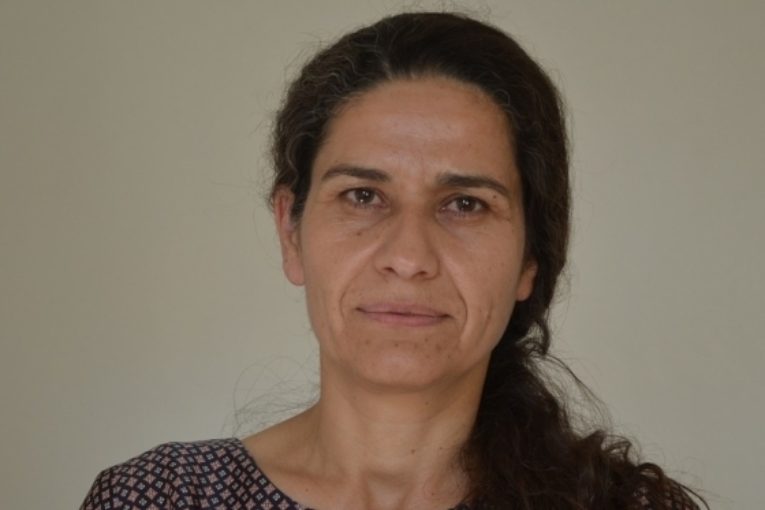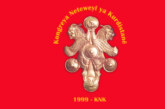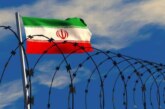
Syrian Democratic Council (MSD) co-chair Ilham Ehmed has stated that the Hasakah attack by Syrian regime forces was a result of the ‘new concept’ agreed on by the regimes of Turkey, Iran and Syria (Baath), and added that it was a new process and situation. Ehmed said: “But it isn’t fully clear whether this is strategic (long-term) or tactical (short-term). It is apparent that there is a great game here and the Turkish state is at the head of it.”
Ilham Ehmed spoke to ANF about the background of the conflict between Rojavan and Syrian regime forces in Hasakah city on the 8th (final) day of fighting. (Conflict ended on 23 August 2016 following a ceasefire in which Syrian regime forces will completely withdraw from Hasakah.)
Ilham Ehmed pointed out that it was the first time that the regime had launched such a preplanned attack on Rojava and said: “This attack is an attack for power and occupation. It is an attack to usurp the will of the people that has been created in the last five years. This is why the resistance and the precious stance against this attack by our people and our forces continues. We will not step back from this position and will never kneel down.”
“This is a message to Turkey”
Ehmed said that regime forces had launched attacks on cities like Hasakah and Qamishli before, but that the level of preparation and the scope of the attack was a first. She emphasised that this attack wasn’t carried out by a local or small unit, but with the central decree from the regime.
“This attack is a result of the ‘new concept’ agreed upon by the regimes of Turkey, Iran and Baath. It is a new process and situation. But it isn’t fully clear whether this is strategic or tactical. It is apparent that there is a great game here and the Turkish state is at the head of it.
The regime had refrained from such conflicts up to now, and had kept the sensibilities between Kurds and the state in mind. Although there had been occasional attacks and retaliation against them, use of jet fighters, statements calling the security forces in the region “PKK” shows that they speak the language of the Turkish state.
With this the Syrian regime is giving Turkey the message: ‘Accept me staying in power. Convince the groups allied to you to do the same. And I will act like you and talk like you against the Kurds.’ Turkey wants to take its place in Damascus’ politics and be influential again so it is getting these messages.”
“Turkish regime made promises it will not keep”
Ilham Ehmed also said that Turkey had made some promises to the regime on an anti-Kurdish basis and continued:
“Up to now, Erdoğan had called Assad a dictator. He supported many terrorist groups including ISIS and opposition groups and had them fighting against the regime. Turkey lost all its friends in the region and it has taken to new negotiations with the regime in hopes of refortifying itself, reviving its politics and blocking the democratic federalism project led by the Kurds. They declared verbally to the regime that they will pull support from opposition groups and made a promise to not object to Assad staying in power. In return, they have asked the regime to stop the Kurds. In line with this, Turkey made an immediate statement after the attack (on Hasakah) and expressed that the regime had finally seen that Kurds posed a threat to them as well.
”Turkey hasn’t left Aleppo even now. In practice, they leave the border open and jihadist groups and ammunition pass through this border daily. So even if they enter a negotiation with the regime and say these things, in practice they continue to do the same. Turkey wants to turn the war back on the Syrian and Rojavan regions that have been cleared of all the jihadist gangs. Turkey doesn’t have an interest in the destruction of ISIS and stability in the region.”
“Iran is leading the war”
Commenting on the political and military actors in the Hasakah conflict Ilham Ehmed said the attack belonged to the Turkish state politically, and Iran practically, and added:
“Actually, the main fighting force in Hasakah is Iran. So it’s these two forces that are directly attacking. It was also Iran who fought in Qamishli before. Iran wants to organise itself in the region. It wants to create its own groups among the Arabs. In this sense, it wants to realise its own project in Syria through groups close to the Regime. This is why the war launched in Hasakah in this last process was also developed against the Arab people’s interest in the democratic autonomous administration, on them joining the Democratic Syria Forces and Democratic Syrian Assembly, and warming up to the democratic federation project. I don’t think this alliance between Turkey, Iran and the Syrian Regime will be permanent. Because they have many political conflicts and these are not conflicts that can be solved. But for their own interests, they are uniting against the Kurds because they see the Kurds as a threat.”
”Russia’s role is still unclear”
Ehmed also mentioned Russia’s role in the new situation and said Russia feels they need Turkey on their side to determine the situation in Aleppo and that they have come to an agreement on some issues. The MSD co-chair said they wanted to determine whether this agreement was a part of the concept, and stated: “On the other hand, we see Russia’s silence against this attack by the regime as approval of the attack. But we hope it isn’t so. Russia must clarify its approach. Does Russia approve the destruction of Kurdish regions, and such an attack against a force that has fought ISIS and fragmentation in Syria and has developed democracy? Russia must answer this question.”
”A very destructive war can develop”
Warning the powers engaged in the new process, Ehmed stated that the situation held great dangers for all sides. “These alliances and this attack on Hasakah are dangerous. The hegemonic forces in the Middle East are ready right now to defend all kinds of ISIS terror, to enter a very destructive war, and make the peoples of Turkey a victim in this war; they are doing this just to bolster a concept that is against the project for the democratisation of the region that has started in Rojava. The silence of international forces and the coalition is also contributing to the possibility of an even greater war.
”Situation not in the interest of Russia or USA”
”There is the possibility that in the future the interests of international powers will clash and that this will open the path for a much greater war. If it comes to that, nobody can stop it. That is why there is a great danger. The agreements Russia and USA have reached on the Aleppo issue, the Syria issue in general, and the agreements in the fight against ISIS could be disrupted by this war. This situation isn’t in the interests of Russia or USA. In this sense, the coalition forces, both forces should make an urgent assessment of the situation and declare that they are with with the democratic forces who have produced projects for democracy and taken the fraternity of peoples as a foundation for their project.”
“We will never kneel down”
Ilham Ehmed also commented on the stance of the people of Hasakah against attacks: “Until now, those resisting attacks have been the People’s Protection Units (YPG), Asayish (Security/Police) and Social Protection Units (HPC). Of course the stance of the people has also been very important. The people of Hesekê and especially the Arabs in Hasakah displayed a truly important and valuable stance. Many people have been evacuated for security reasons, and the ones who remain are resisting.
“This aggression by the Syrian Regime is an attack for power and occupation. It aims to usurp the will of the peoples created in the region within the last five years. This is why the resistance and the valuable stance of our people and orces continues. We will never step back and never kneel down. But we are hoping that the regime will understand this and become conscious of how the Turkish state wants to pull them to the [anti-Kurdish] Adana (1998) agreement once more, and that there is nothing to gain there for them. The regime has to reconsider this decision and put out the fire they have started. If they do that, it will be the end of the Turkish state’s interests in the region.”
Source: ANF



